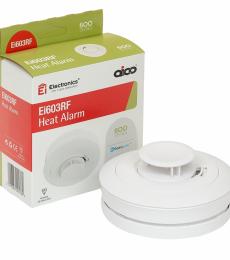Where to get a burglar alarm in Bristol? As a leading stockist of Intruder alarms we are often asked about the benefits of installing a system and whether to go 'hard wired' or 'wireless'. With the nights now drawing in and people returning to work it is a good time to think about installing an intruder alarm for added security and peace of mind, for retro fit or tricky installations we often recommend going for a wireless alarm system to minimise disruption and reduce costs. We will talk a bit more about these below but firstly let's look at the benefits of installing an intruder alarm:

Benefits of installing alarm systems
- Peace of mind. Installing a home security system gives peace of mind to you and your loved ones that your property is protected and you will be notified of any unwanted intrusion. Security when your at work or on holiday, ensuring your home and it's contents are safe and secure.
- Active Deterrant. Having an intruder alarm is an active deterrent , this is especially true if you have a visible Siren/Bell Box on the outside of the property. We also specialise in CCTV and security and fitting a good burglar alarm and CCTV is the best way to prevent and deter thieves.
- Protects your valuable possesions. Whether your belongings have an intrinsic cash value, or are only valuable to you, nobody wants to see them stolen. A properly installed home alarm is enough to scare off all but the most determined would be intruders.
- Reduce Home Insurance Premiums. A home alarm system should be seen as an investment. Yes there is an upfront cost but this is offset over time as a lot of insurance companies will reduce the cost of your premiums.
Once upon a time, all home security systems were hardwired. Connecting every sensor, keypad, camera and other peripherals required a technician to open up the walls, run wires to and fro, then patch everything together at the end — and then do it all over again if you need any maintenance, updates or changes. Wireless home alarm systems not only free us from those constraints, they introduce benefits that weren’t even dreamed up a few years ago.
Pros of wireless alarm systems
- Easy to install and uninstall. Installing and moving a wireless home security system is a DIY job. Moving? You won’t have any problems taking your security devices with you.
- Renter-friendly. Since you don’t need to open up the walls, wireless alarm systems are a strong choice for renters. There’s usually no need to damage or significantly alter the property.
- Flexibility and scalability. Want to add another camera, more motion detectors or a few door and window sensors? No problem. Wireless systems make it easy to add devices.
- Easy upgrades. Wireless systems are more future-proof than their hardwired counterparts. If the system or its components become broken or outdated, you can swap in new ones without too much trouble.
- Smart home integration. Wireless security systems and smart home hubs are becoming more and more compatible. It’s a major convenience to be able to arm and disarm the alarm and operate all of your smart home devices in a centralized manner. Just keep in mind that some brands and manufacturers play better together than others, so you may need to investigate before making a purchase.
- Affordability. It’s possible to get up and running with a good wireless alarm system for less than £200. The systems are much less expensive than their hardwired counterparts, especially since there’s no need to pay for installation.
- Wi-Fi and cellular communications options. Security systems that depend on a landline stop working if the lines go down or get cut. Wireless systems don’t have this vulnerability because they use Wi-Fi, cellular networks and/or wireless mesh networks to interconnect each device and to reach emergency services. Alarm systems that use a cellular network (either as the primary means of communication or as a backup) can communicate through storms, power outages and downed lines, as long as there is sufficient cellular coverage in the area.
- Battery power. Wireless alarm systems often use batteries as their main source of power or as a backup. As a result, you can stay up and running even through a power outage.
- Remote control. Wireless systems are easier to operate from outside the house. Depending on the system, you can arm and disarm either from a smartphone app or using a key fob/transponder.






